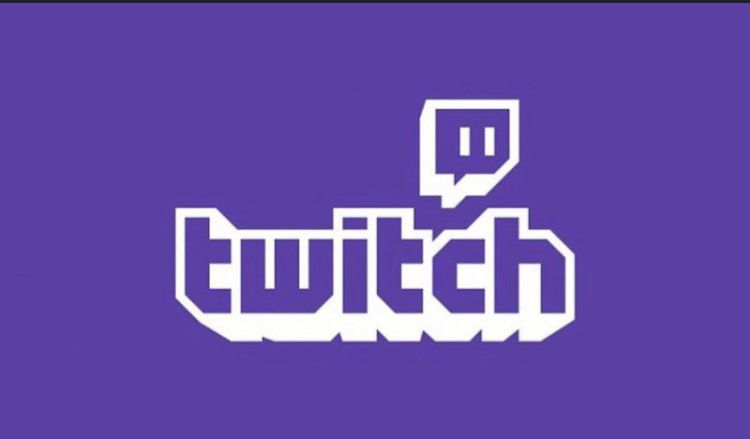Copywriter, e-commerce manager, SEO specialist, social media manager: digital has generated new professional figures in different sectors, from shopping to information, through social communication. With the good peace of mind of television, now perceived as a tired organism that proposes a twenty-year format, entertainment is also migrating to the web. The pandemic has depopulated the phenomenon of Twitch, a popular live streaming platform, thus giving visibility to the work of the streamer.

In 2007, Justin Kan, Emmett Shear, Michael Seibel and Kyle Vogt founded Justin.tv, a platform on which users could upload live and video to their channels. The San Francisco startup has undergone considerable success, and with it came many unpleasant episodes: violation of copywright and publication of violent content multiply; even there was the case of a live suicide. So in 2011 it was decided to separate the "healthy" section of the project, related to videogame streaming: Twitch was born. The success is global, so much so that in August 2014, Amazon bought the site for 970 million dollars. The official data of the platform are not easily available online, but according to the site Twitchtracker, in 2021 were 22.8 billion hours of content seen by 2.78 million viewers. Viewers are 41% between 16 and 24 years, 65% males, who prefer live video games (above all, League of Legends, online multiplayer game of the battle royale genre).
But how does a live show work? And above all: how do you earn?
Visualizza questo post su Instagram
Webcam, microphone and good internet connection: these are the tools of the streamer trade. The contents of the live instead, vary greatly: there are the IRL (acronym of in real life), where viewers enter the daily life of those who broadcast, often around the cities; live reading; real cooking shows or role-playing games. The most popular categories are gaming (international tournaments are also broadcast) and just chatting, where the streamer has the opportunity to talk with viewers. It is precisely the possibility of dialogue, through a chat, the strong point of Twitch: it creates a relationship between entertainer and audience, which retains users to the point of supporting streamers economically. How? Through a system of donations and monthly subscriptions: there are formulas of five, ten or twenty-five euros; subscription has advantages: no advertising and access to exclusive chat with creators. The revenue is divided between streamer and platform, which can sign a partnership with channel owners and support them in turn. There is also revenue for sponsorships of live products, as well as the sale of advertising interludes. Twitch does not allow content creators to spread news about earnings: a recent hacker attack has revealed staggering compensation, in the order of hundreds of thousands up to a million dollars.
Visualizza questo post su Instagram
In front of these figures, shouting scandal is the most common reaction: "shameful to earn so much money playing video games" or "not a real job" are the most popular phrases. There could be no more superficial analysis in reducing all the channels to the image of the bloodshot-eyed nerd, locked in his room for hours and hours in front of the computer. In the last two years, real talk shows have developed, in which the most varied topics are addressed. Among the most successful ones are certainly to mention Daily Cogito by Rick Dufer (recently moved from Twitch to Youtube. Yes, this platform also allows you to stream), in which it deals with philosophy, culture and current affairs; Adrian Fartade, Scientific popularizer and enthusiast of space exploration: celebrated his live commentary on NASA and ESA space launches. The world of football has also landed on the purple platform: BoboTV, a football channel led by Bobo Vieri, Antonio Cassano, Daniele Adani and Nicola Ventola, hosts exclusively coaches and players (with peace of mind of the broadcasters)With an audience of thousands of fans. Finally, Ivan Grieco, perhaps the most virtuous example of the online offer: born as a commentator on e-sports, over time he managed to create a topical format focused on politics: his marathons during the local and parliamentary elections were very successful, bringing many young people closer to politics. Par condicio fully respected: among the respondents in fact include Carlo Calenda, Virginia Raggi, Giuseppe Conte, Marco Rizzo, Simone Pillon, Marco Cappato, Matteo Renzi.
Visualizza questo post su Instagram
Ivan Grieco has been fighting for years to make the world of digital content creators known to politics, workers in all respects that generate profit, pay taxes but are not regulated and adequately protected. The relationship with the platform is ambiguous. There is no contract of employment, they are self-employed workers framed with obsolete ATECO codes. Yet they depend on Twitch, the partnership signed and the algorithm, which penalizes those who do not transmit with continuity. Result: if a streamer does not live constantly, in the long term it risks losing visibility. So a few days of illness, few holidays and devastating rhythms. This is the situation reported by Grieco on 6 May 2021 to the Working Committee of the Chamber of Deputies (available on Youtube).
The Internet is a fast-changing organism, a mine of opportunities to be exploited in ever-changing fields. To exclude those who live from this category of workers is a symptom of cultural backwardness. Why does a writer, a director, a television presenter or a radio presenter have more dignity than those who, in essence, perform similar tasks on the web? While we can wait and hope for a cultural change with respect to the creator economy, politics has the duty to protect as soon as possible a category that has remained in the shadows.
.jpg)